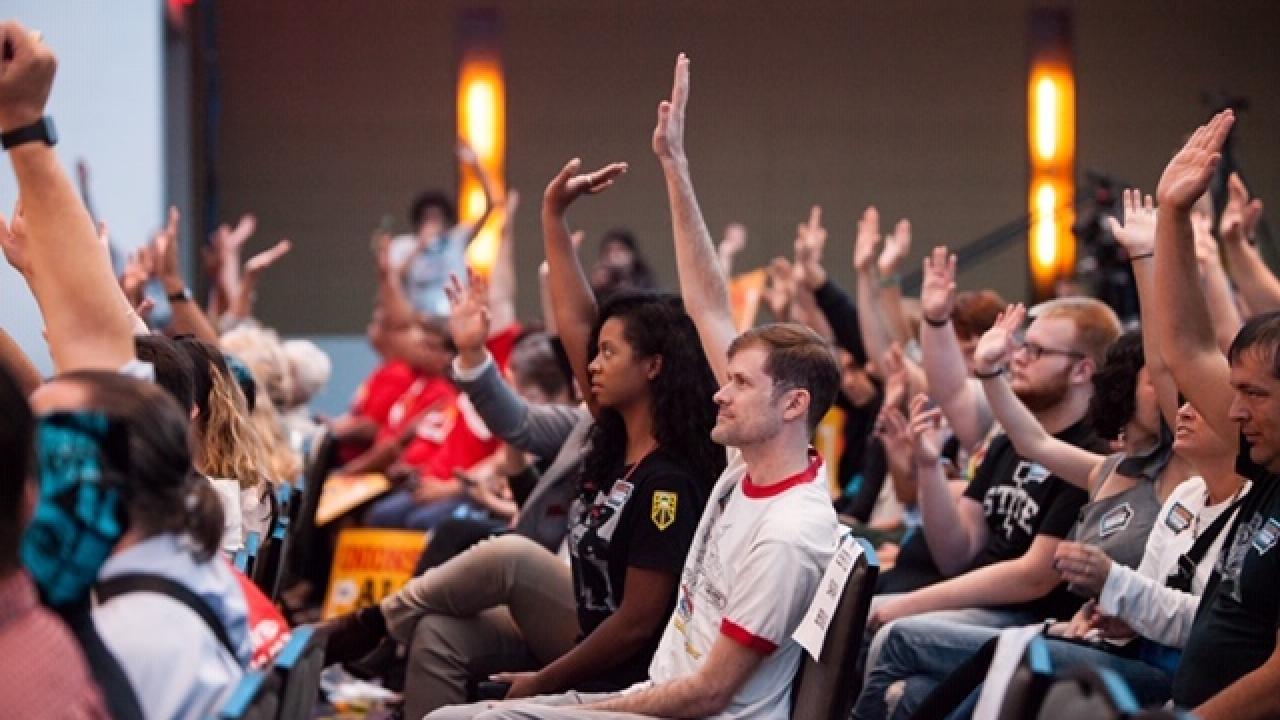Many decades ago, I stopped showing up for college classes and began knocking on doors in Southern Minnesota, inviting the people I met to join People Involved in Rice County, a new grassroots group dedicated to working on … well, whatever economic and local issues came up at kitchen tables. Fortunately for me, one of my college professors was the late Senator Paul Wellstone, who saw door knocking in the American heartland as at least as good as a classroom education. Senator Wellstone introduced me to the leaders of the nascent Minnesota Citizens Organizations Acting Together (COACT), an introduction that led to a lifetime of community and union organizing. Paul Wellstone taught me to always ask: “Who benefits? And who decided?”
In my thirty-plus years of rural and small town doorknocking, I’ve been offered puppies and newborn guinea pigs, bong hits and brownies (though rarely together), pozole cooking lessons and Creole classes, and a glimpse into peoples’ lived experiences. I learned to note the chaos of children’s toys or the presence of medical equipment, or the pile of undealt laundry — and to cue my organizing conversations accordingly. I’ve walked moms to school for pick-up to continue conversations, helped fold that laundry, chopped garlic for the family dinner, and accepted many glasses of sweet tea, lemonade, and the occasional beer.
My conversations ranged from local safety (we need traffic signals!) to utility bill increases to mobile home court lot rent to school discipline policy. Knocking doors in Milltown, Montana, Melody Fuchs — a young mom with three redheaded girls in tow — showed me baby food jars of murky water she’d collected from her tap. We organized what became the first EPA Superfund site and helped launch the decades-long effort to hold the Anaconda Company accountable for health and pollution.
What I learned from these small town encounters was that it takes grit, hope, and a strong commitment to family to get by in an uncertain world. So it was with a heavy heart that I watched rural and small town voters take the blame for the outcome of the 2016 election. Many of these voters supported Obama’s “hope and change” message in 2008 and 2012 and then Trump’s “Make America Great Again” message in 2016. These voters and their families were seeking the same opportunity in each election: a chance to do better economically, to ensure their children can thrive, and to have a voice in the decisions that affect their lives.
A spate of books appeared that sought to tell stories of the rural experience, and the progressive political elite quickly framed rural America as uneducated, white, bigoted, and small-thinking.
The organizing work of 2020 proves this characterization wrong. As you’ll read in this issue, there is a grassroots movement in rural America. Organizers and leaders are coming together in small towns across this nation with the precise goal of building power to effect change, and they’re doing so with a commitment to including the many diverse voices that make up the rich fabric of these communities.
The scope, scale, and sophistication of rural and small-town grassroots and political organizing in 2020 is unprecedented. We don’t yet know if it’s enough to influence the outcomes of the November elections, though we’ll find out in a matter of weeks. But I believe this investment in rural organizing will change the political environment and set the table for rural-urban alliances that will influence state and national politics for years to come.
Why has 2020 been different? Philanthropic support for rural and small community organizing has grown. Experienced organizers returned to small towns to lead the work, making homes for their families and building teams of local organizers and canvassers. Proven initiatives, such as the Race Class Narrative project and relational organizing, have been applied at scale. And moral movements, such as Black Lives Matter and #MeToo, have cut across urban-rural divides. Myths that long kept progressive organizations from investing in rural communities — like the notion that rural America is white, conservative, MAGA country — have proved inadequate or false.
This issue of The Forge tells some of the stories of the diverse and inspiring organizing taking place in rural communities across the country. From West Virginia to Utah, from main street to mobile home courts, we’ll hear how organizing in small towns works and how leaders and organizers sustain themselves.
Included here are the stories of meatpacking workers facing COVID-19 in Souixland and manufacturing workers organizing for unions in the Deep South and the Midwest. Mobile home court tenants, rural electric coop consumers, and main street business owners tell their organizing stories and, in doing so, point to the economic and social issues they all share. Rural America is also rich with cultural organizing. In this issue, you can unpack string band music’s heritage and relationship to social justice work, and you can enjoy Sioux Falls, South Dakota native artist Jennifer White sharing Northern Plains watercolors.
It’s been my pleasure and honor to support the contributors of this issue of The Forge in their work and in their story-telling.

